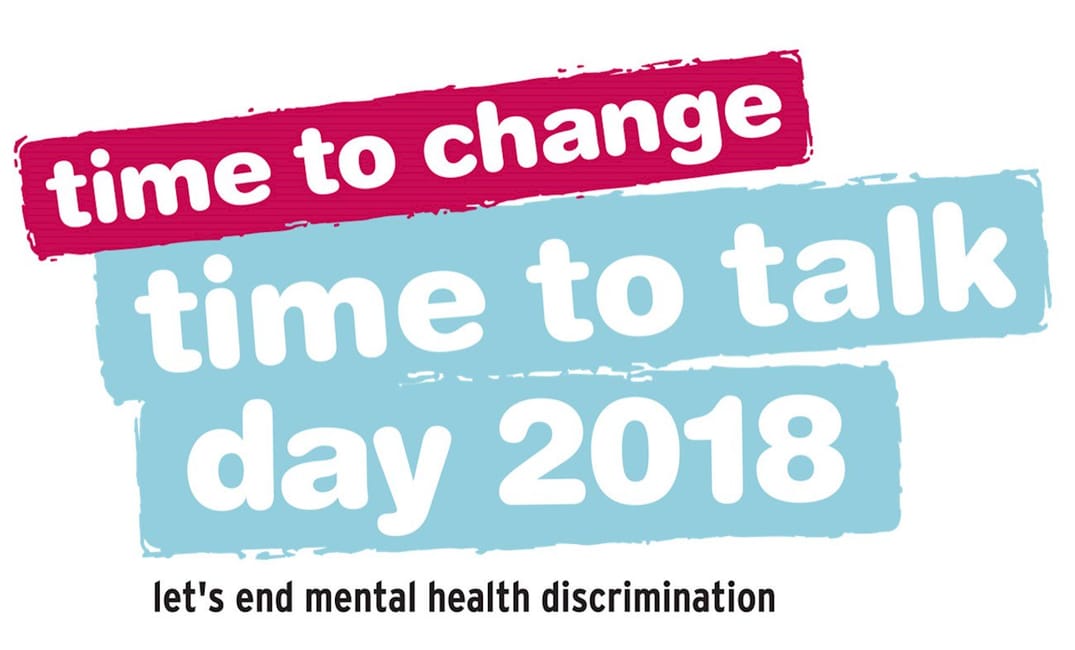Amy Freeman
Naked Politics Blogger
This Thursday, Time to Change, a growing campaign led by the well-known, established mental health charities, Mind and Rethink Mental Illness, launches its very own attack on the social perceptions that surround mental health. “Time to Talk Day 2019” has one, very simple, very accessible aim: to encourage everyone to “make a conversation about mental health”.
The campaign suggests doing anything and everything in order to stimulate this much-needed chat. According to the website, you should corner your best friend with tea and biscuits and force them to share their deepest and darkest feelings at the same time, or single-handedly organise a guest speaker at a never-before-seen event who will effortlessly enlighten so many previously unaware individuals on the topic of mental illness.
All you need to remember folks: “take the time to talk”.
How you do that? Irrelevant.
On the face of it, initiating a national conversation (and yes, the almost endless references to tea and biscuits do, without a doubt, make it a very “British” conversation) appears positive, ground-breaking, revolutionary. And yet, despite its tackling of a complex, sensitive issue, the campaign presents this feat as overtly accessible.  As we are all more than capable of asking “How are you?” to an old friend, or commenting to a passer-by about the weather, we are also more than qualified to offer up a string of detailed facts about the issue of mental health, minimise an individual sufferer’s anxiety and look out for a mate when they’re having a bad day.
As we are all more than capable of asking “How are you?” to an old friend, or commenting to a passer-by about the weather, we are also more than qualified to offer up a string of detailed facts about the issue of mental health, minimise an individual sufferer’s anxiety and look out for a mate when they’re having a bad day.
After being sent a work email advertising our upcoming fundraising event in support of “Time to Talk Day”, I clicked on the website link, had a scroll, and felt confused. Drawn in by the alluring simplicity of the concept and the surprising movement of mental health onto both the national political agenda and into my work email account, I was also somewhat disappointed by what I found.
Did I dispute the facts surrounding the importance of raising awareness of mental health? Absolutely not.
As Time to Change helpfully brings to our attention, around 1 in 4 people suffer from some sort of mental health illness at some point in their lives, often citing social exclusion and isolation as a main issue to deal with. Over the last few years, the growing inclusion of mental health in almost every part of the social sphere, from social media campaigns to political manifestoes, has been extremely necessary and extremely well-received.
But, (and yes there is always a but) I then asked myself, are “4 funny videos, 2 silly jokes and 1 friendly smile” really going to somehow solve our systematic relationship with unhappiness? Can “2 thaalis, 4 rotis and 2 sabjis” really “nourish our bodies and minds”? Does “1 trip to the gym” have the underlying and surprising capacity to “challenge a mental health myth”? Thus, whilst this campaign definitely succeeds in raising awareness of our increasing need to discuss mental health issues in all aspects of our lives, at the same time it completely diminishes the very complexity of mental illness itself.
Thus, whilst this campaign definitely succeeds in raising awareness of our increasing need to discuss mental health issues in all aspects of our lives, at the same time it completely diminishes the very complexity of mental illness itself.
By suggesting that merely 2 cups of tea and 3 dunked biscuits can reduce a depressed sufferer’s overwhelming sense of social pressure, the campaign rather directly proposes that:
1) all mental health problems are just reincarnations of the same issue, or at least can all be treated in exactly the same way, and that…
2) all of our national unhappiness can be simply whisked away with one 10-minute chat en route to the loo during your morning break.
Both the superficial and hidden complexities of mental illnesses, together with the century long mediations on what the best ways to help people deal with mental unhappiness may be, are quickly and silently thrust altogether, glazed over and simply solved. Reducing mental health to such a basic idea with such an easy remedy, the campaign does not actually encourage people to truly reconsider any of their attitudes towards a very serious, very prominent social and medical issue.  Instead of debating the nuances of how each individual sufferer may be feeling or presenting a potential list of different methods to help these individuals seek the help they so greatly need, the campaign instantly labels us all as experts. After just one click, with the help of one poster, we are all suddenly ordained with the capacity to solve the issue of mental health.
Instead of debating the nuances of how each individual sufferer may be feeling or presenting a potential list of different methods to help these individuals seek the help they so greatly need, the campaign instantly labels us all as experts. After just one click, with the help of one poster, we are all suddenly ordained with the capacity to solve the issue of mental health.
And, you’ll be pleased to know, it’ll only take you 10 minutes!
So, on 2019’s official “Time to Talk Day”, I ask: isn’t it really time we stop pretending that mental health has some quick fix solution, and instead start asking ourselves how we can collectively come together to aid the growing number of people who are really in need of something much more nuanced than just one conversation?

